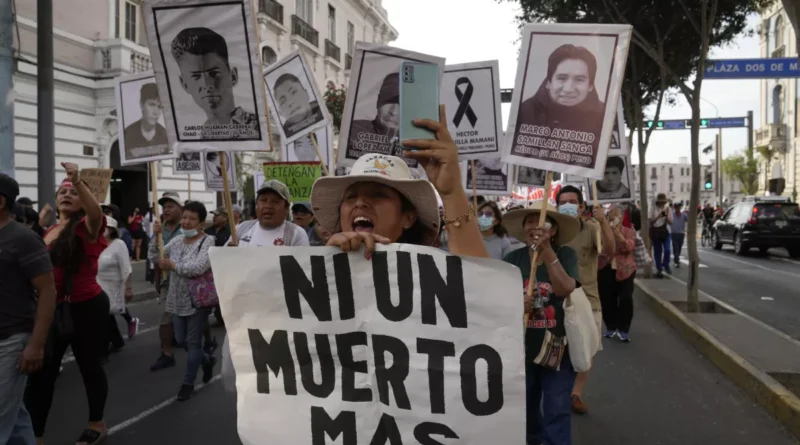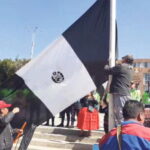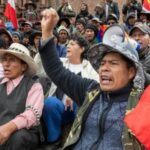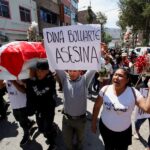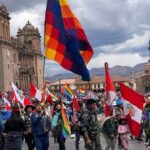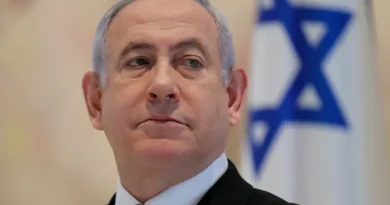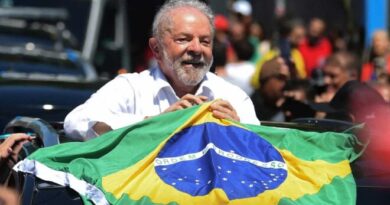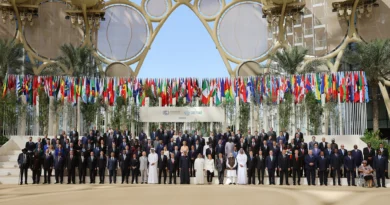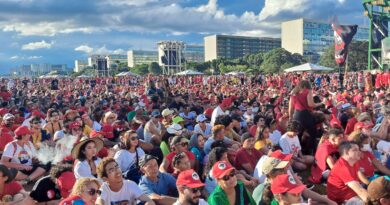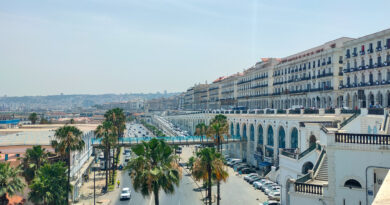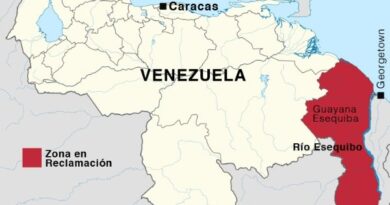Protests in Peru already claim 49 deaths without a way out in sight
CESAR ROBLES
Lima
The Congress of the Republic, with a right-wing and fascist majority, has just given a vote of confidence to the government cabinet led by Alberto Otárola, ignoring the protests and claims of various political and social sectors and making a situation more critical and difficult to solve. way out of the crisis that is shaking the country and that has already been claiming the lives of 49 compatriots.
Only on January 9 in the region of Puno, in the south of the country, the protests have so far left a painful balance of 20 dead from bullet wounds and a hundred injured. Although the protests were taking place near the Inca Manco Capac airport in the city of Juliaca and there was a latent possibility that the protesters could take over these facilities, the truth is that the response of the National Police was disproportionate, abusive and criminal. .
The shots were fired at the body, apparently as if it were a directive or guidance from the National Police forces and the Army, as had previously happened in the city of Andahuaylas, Apurímac, where 8 citizens also died, some of them poor peasants from rural and high Andean areas of the country.
Days before the protest against the government resumed, in a television interview, Admiral José Cueto Acervi, congressman of the republic for the fascist Renovación Popular party, and one of the main promoters of state violence, loosely stated that "I was hoping that the Armed Forces would eliminate these people."
And apparently this is the attitude and conduct that the government has assumed, since knowing the deaths caused by the protests in Puno, Prime Minister Alberto Otárola, in a message addressed not to the nation, but to the dominant elites, emphasized that they will "restore internal order" and that what has occurred in the country is a "coup" attempt.
A bravado message and a lack of empathy with the families of the deceased, zero self-criticism, and mishandling of the political conflict. They want to talk, but at the point of bullets, a situation that is becoming increasingly untenable.
For now, the crisis worsens and expands to other regions of the country. If until a few days ago 63 interrupted transit points and 13 blocked national roads were reported, according to the National Superintendence of Land Transport (SUTRAN), this situation tends to grow and increase exponentially, since over the course of the days they have been adding More social and union organizations and unions, particularly from the northern part of the country, such as the province of Chota in the Cajamarca region, the place of origin of former president Pedro Castillo, joined the protest.
But while the conflict escalates, the government seems to have no answers to the social conflict it is going through, with an erratic action and lacking in political initiative, it tries to appease the protest with dialogue tables whose main axis is social demand, ignoring that the protest and the movement is eminently political and whose central demand is the resignation of President Dina Boluarte, the closure of the congress of the republic and the immediate call for new general elections.
Another member of the government -the Minister of Labor, Eduardo Alonso García- presented his resignation on Thursday in disagreement with the deaths registered in Puno and Cusco.
On the other hand, the government insists on declaring a state of emergency, curfew and social immobility, something that people do not respect, but which it insists on as a recipe empty of content. It seems that only protected by the repressive force of the State can control a situation that by all accounts is already unmanageable.
The Boluarte government extended the state of emergency decreed in mid-December and extended it this Sunday for 30 days in Lima and in the Andean regions of Puno and Cusco.
A decision that coincides with the announcement of new mobilizations from southern Peru to the country's capital starting today, Monday.
The 49 deaths are already a path of no return and the prospects that Mrs. Boluarte can even finish 2023 are becoming increasingly difficult and unsustainable.
This situation, however, presents us with an alarming involution of the political and social rights suffered by the Peruvian people, particularly the rural and Andean sectors of the country, so marginalized and excluded from what the elites call "development."
This has been clearly seen in the origin of the dead, the majority of the Andean world, poor peasants who were deprived of the illusion of having one of their representatives, one of "theirs" in the Government Palace.
Pedro Castillo, a rural teacher and rondero, who embodied these aspirations in the electoral contest, was a victim of class hatred from a certain sector of Peruvian society and the ferocity of the Lima press. They did not let him govern for a single day since he assumed the reins of the State.
This is necessary to point out to understand the symbolic representation that the former president exercised in a certain sector of the Peruvian population, also being clear in pointing out that the Castillo government was never popular and less of a leftist.
But what to do? What is the way out of this entrapment? In the immediate future, circumstances require the immediate resignation of Dina Boluarte and the President of the Congress of the Republic, José Williams Zapata, who by constitutional succession should be in charge of the Presidential Office.
The election of a new board of directors of the Congress of the Republic would remain as a constitutional and legal solution, which must be formed by consensus and with the participation of all political sectors. This is key, because the new president of Congress, since there is no acting president or vice president, would end up taking office as president of the Republic, as happened on the previous occasion with Francisco Sagasti.
This transitional government would dedicate itself within a period of 8 months to calling and holding general elections, and must provide all political sectors with the guarantees of clean and transparent elections.
But the urgency of political events should not prevent the discussion of the renewal of the political system, which implies a change in the rules of the political party system that establishes the implementation of primary elections for the selection of representatives or leaders.
Also the constitutional modifications to the figure of the vacancy for "mental incapacity" to govern and the "question of trust" for the dissolution of parliament.
And one of the central axes of the protest, which is the consultation of the population on whether or not they want a change to the Constitution through a Constituent Assembly, since the one of the year 1993 that was approved by the government of Alberto Fujimori was imposed with fraud. , and it no longer represents the new social pact that the country demands and demands mobilized in the streets.

